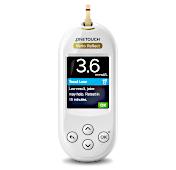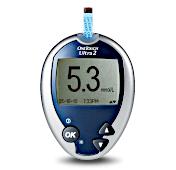5 Tips For a Better Night’s Sleep

A lack of sleep is not only tiring, but it can also affect your blood glucose control. Learn some new strategies to help get better zzz’s.
As you know, a good night’s sleep is an important part of anyone’s health, but this is especially true for someone with diabetes. A lack of quality sleep disrupts your body’s ‘internal clock’ and can affect blood glucose control.1 How much sleep a person needs depends on the individual, but the average person needs 7 to 9 hours to be well rested. If you’re having difficulties getting the proper rest you need, try these 5 tips for a better sleep:
- Set a sleep routine. Try to go to bed and wake up at the same time every day, including on weekends. This helps set a consistent internal clock, so that your body starts to naturally ‘know’ when it’s time to sleep and wake.
- Exercise early, not before bed. Exercising increases your heart rate, which can make it more difficult to relax and fall asleep. Some people, however, may find exercise makes them more tired. If morning or daytime workouts aren’t possible, try exercising right after work instead of later in the evening.
- Shut down your devices. As you’re winding down for bed, turn off that laptop, smart phone, tablet AND TV! The blue light emitted from your devices suppresses the secretion of melatonin and stimulates your brain. 2 Try reading or listening to a relaxing playlist instead. However, if you work a night shift or use a lot of electronic devices at night, consider using a blue light blocking app on your devices or wearing blue light blocking eyeglasses for the couple of hours before your bedtime.
- Limit alcohol, caffeine and heavy meals. While a nightcap may cause you to fall asleep faster, it can lead to a poorer quality of sleep. Caffeine (even several hours before bed) can also keep you up. If you’re finding it hard to sleep, try switching to decaf in the afternoons and avoid caffeine-containing beverages or food in the evenings. You may also want to limit heavy meals before bed since they can keep you up.
- Stay out of your head. It’s not always easy to do, but try not to replay the day in your head or worry about the next day. Relaxation exercises, meditation or calming music can help. If you continue to have difficulty sleeping, you may want to talk to your healthcare professional to see what other strategies are available.
References:
1 McCammon, E. (2019, August 8). Taming the blood sugar roller coaster. Retrieved March 10, 2021 from https://www.diabetes.ca/managing-my-diabetes/stories/taming-the-blood-sugar-roller-coaster
2 Publishing, H. H. (2020, July 7). Blue light has a dark side. Retrieved March, 2021, from https://www.health.harvard.edu/staying-healthy/blue-light-has-a-dark-side
Berg, E. G. (2014, February). 8 Tips for Better Sleep. Retrieved March 10, 2021, from http://www.diabetesforecast.org/2014/feb/8-tips-for-better-sleep.html
Joslin Diabetes Center, (n.d.). Avoiding Nighttime Hypoglycemia. Retrieved March 10, 2021, from https://www.joslin.org/patient-care/diabetes-education/diabetes-learning-center/avoiding-nighttime-hypoglycemia
Related articles
CA-OTB-2100024













